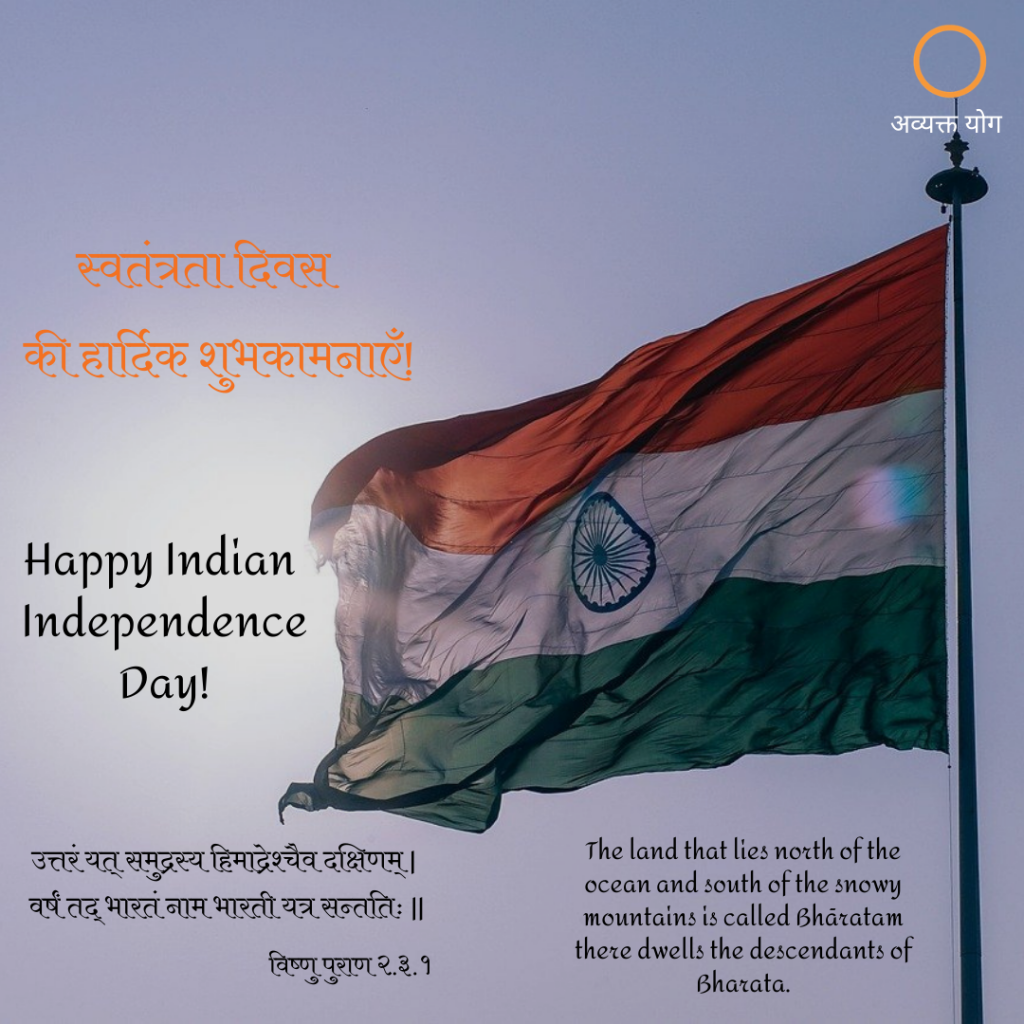Bharata, or India, is not short of a miracle in itself.
While Bharatvarsha has existed for thousands of years, it has seldom functioned as a single, unified unit.
In 1947, India was created as a modern nation by reorganizing 530 odd princely territories into Part A, Part B and Part C states. In 1956, these were again reorganized on linguistic lines and through a few more iterations, now comprise 28 states and 8 union territories.
Peoples clubbed together on the basis of language, who have different cuisines, sub-cultures, demographics, but still subscribed to a commonality that resonates through all of us.
We started from being liberated from foreign rule, drained of our wealth, with only dreams in hand.
We now are the third-most powerful nation in the world, soon to be the most populous and on course to becoming a developed nation faster than any other in the history of mankind.
So, in the scheme of things, 75 years isn’t a lot. There is still much to do. And it’s time we stopped leaving it on others.
Ṛṇatraya literally means ‘three debts’.
The idea of ṛṇatraya (pronounced as rina-traya), the three debts under which every human being is born, has been referred in the Rgveda.
However it is more explicit in other Vedic literature like the Taittiriya Samhitā and the Satapatha Brāhmana.
These ṛṇas are:
- Deva-ṛṇa – debt to gods : It is repaid by the performance of yajñas or Vedic observances.
- Pitṛ-ṛṇa – debt to the ancestors : It is repaid by begetting sons and doing śrāddhas and other observances.
- Rṣi-ṛṇa – debt to the sages : It is repaid by svādhyāya and tapas.
Deva-ṛṇa may be repaid by worship of gods, fasting and other types of austerities also, if one is unable to perform yajñas. Sometimes two more ṛṇas are added as follows:
- Brāhmaṇa-rṇa – It is repaid by giving gifts to brāhmaṇas since they perform many religious rites for us.
- Ātma-ṛṇa – debt to the jīvātman, repaid by taking care of the body-mind complex properly.
The Mahābhārata mentions an interesting aspect of debt, ānṛśaiṅsya since we can live here only by the goodwill of others.

As society changed, our approach towards these Ṛṇas also changed. It became more ceremonial, rather than a sense of gratitude arising out of the realisation that this whole universe has come together in a certain manner to enable us to experience it.
The universe is infinite – and so one can be forgiven to have not paid much attention to it, while being stuck to more important matters on our phones.
But there is one more Ṛṇa that has to be paid off – Rāshtra Ṛṇa – the debt that you owe to your country.
We Indians are a funny lot. The whole year we spend in speaking about what is bad in India – be it infrastructure, the politics, the expenses and what not.
We NRIs in Dubai are especially adept at this – see how the UAE has grown, wow what infrastructure, oh the roads, oh the lifestyle…all while plotting moves to the next green pasture – States, UK or Australia.

How many points were scored in that ticker that evaluates one’s chances to qualify for residency in these countries? Oh, I will gladly take a test in English (again) just to prove that I can survive in these promised lands…
All this while conveniently forgetting what got us here in the first place. The land we were born into – that fed us, that gave us education, that made us capable that we could fly down to other countries, work hard and make a name for ourselves.
You may say that this is Pitṛ-ṛṇa – debt to our parents. Yes it is, in part. But if your parents were born in Somalia, would you have had the same chances? The same education and upbringing? No? Then don’t you think that there is a Rāshtra Ṛṇa to be cleared as well?
The best part is – it is not that difficult to give back. Not just as charity – but as knowledge, as work, as something that contributes in moving our country forward. We take loans and we pay them back with interest – this is a loan that one cannot calculate a tangible interest for. But we can at least do our part?
It isn’t enough to wake up on 15th August, forward a few WhatsApp messages and spend the rest of the day enjoying a holiday. If our ancestors were on holiday, we would still be under foreign rule.
They worked hard, gave their blood and sweat to see us free. Not for spending the day on Netflix, I assume.
And so today is a good day to start. Don’t make elaborate plans. A simple gesture is sufficient. But start. That would be much better than forwards and stories. Seek greener pastures, but clear your Rāshtra Ṛṇa. The country does not ask for it, but it is your duty, and your responsibility as well.

When everyone works for the betterment of the country, the society as a whole prospers. That is when we can truly be independent.
As Modiji said today – सबका साथ, सबका विकास, सबका प्रयास! – everyone has to do their bit!
वन्दे ध्वजं त्रिवर्णं सर्वत्रम्।
I salute the tricolor flag that’s everywhere.
रत्नाकरधौतपदां हिमालयकिरीटिनीम्।
ब्रह्मराजर्षिरत्नाढ्याम वन्देभारतमातम्॥
Salute to my mother India, whos’ feet are washed by the sea, adorned with Himalaya, she, who possess many Brahmarishis (intellectual sages) and Rajyarishis (king sages).
अत्र जन्म सहस्राणां सहस्रैरपि सत्तम।
कदाचिल्लभते जन्तुर्मानुष्यं पुण्यसञ्चयात्॥
It is only after many thousand births, and the aggregation of much merit,
that living beings are sometimes born in Bhárata as human.
Jai hind! Wish you a very happy 75th Indian Independence Day!
